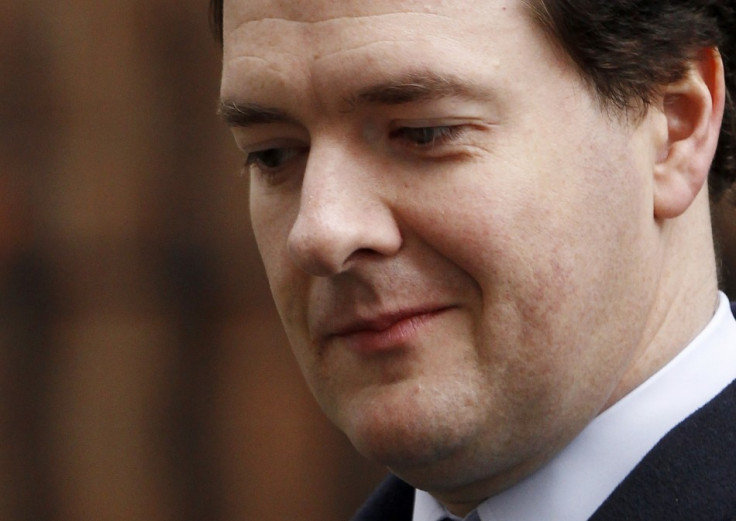Budget 2012: George Osborne's 'Last Chance' for UK Economic Growth

Chancellor George Osborne's next budget is his last chance to get Britain's economy growing before the next general election, a business thinktank has warned.
Osborne will make his budget speech to the House of Commons on 21 March.
"There are substantial lags between the implementation of policies and their effects on the economy," said Douglas McWilliams, chief executive of the Centre for Economics and Business Research.
"Any action taken later than now will not affect growth before the next election.
"It is also the last budget before entering the pre-election phase, where controversial pro-growth measures are ruled out by politics."
McWilliams also called the government's budget deficit predictions on how much the fiscal black hole will be reduced by as "over-optimistic".
He highlighted three areas where "growth can be promoted without jeopardising deficit reduction": deregulation, scrapping the 50p top tax rate and cutting fuel duty.
"Even a modest reduction in fuel duty could support economic growth and give an important psychological boost to financially squeezed households," McWilliams said.
"According to our calculations, these benefits could be reaped without hurting the public purse."
It is already speculated that Osborne will announce a drop in the top tax rate to 45p, though this will not come into effect until April 2013.
As a concession to the Conservatives' coalition government partners, the Liberal Democrats, who were unhappy about the prospect of the 50p tax rate being scrapped, a so-called "tycoon tax" will be introduced in order to close some of the loopholes used by the rich to avoid paying certain taxes.
The latest growth figures showed that the UK economy contracted by 0.2 percent in the final quarter of 2011, fuelling fears that Britain will tumble into a double-dip recession.
Overall in 2011 the UK economy grew just 0.9 percent.
For economic figures to meet the proper definition of a recession there must be two consecutive quarters of negative growth.
The next set of GDP figures for Britain are due out in April.
© Copyright IBTimes 2024. All rights reserved.






